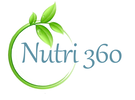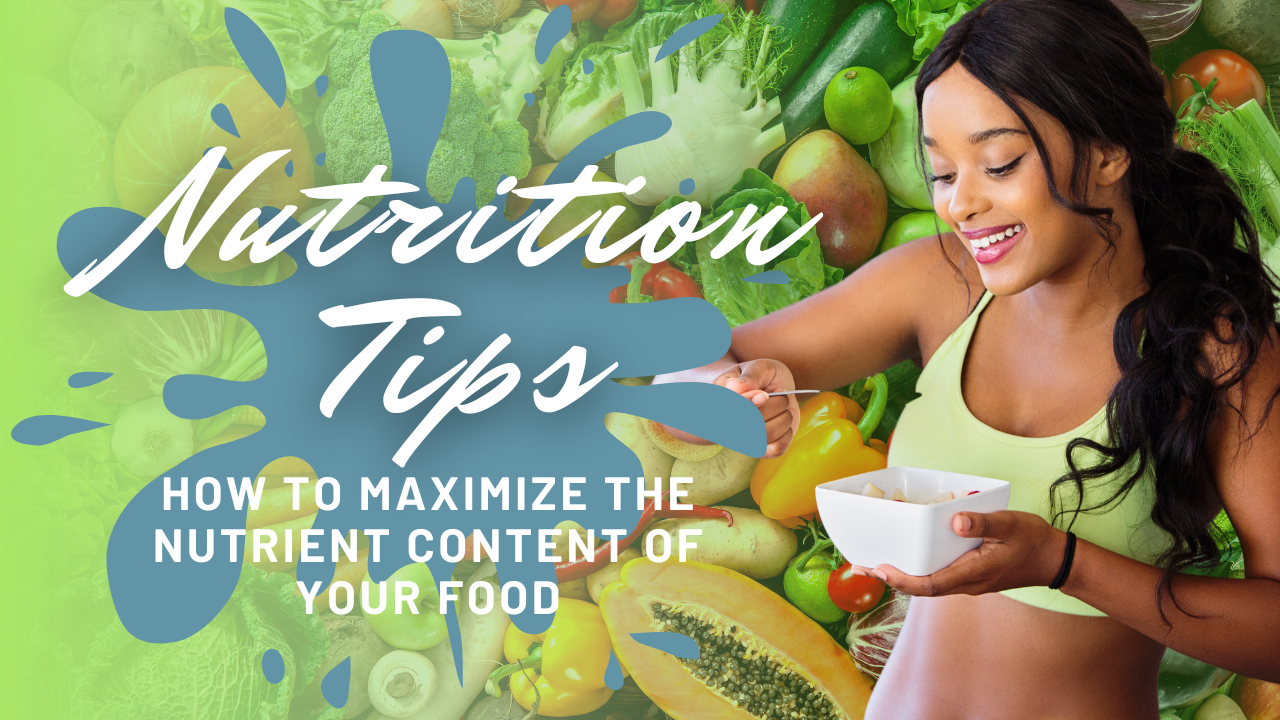|
No matter what your dietary restrictions or preferences are, everyone can benefit from maximizing the nutrient content of their food. By following a few simple tips, you can make sure that you're getting the most out of every meal. Whether you're a busy mom trying to feed your family healthy food on a budget, or a cook looking to get the most nutrition for your time in the kitchen, these tips will help! So without further ado, let's get started! Food storage and preparation are important not only for maintaining the taste and quality of your food but also for preserving its nutrient content. Nutrients are essential for our health, so it's important to understand why and how they can be lost during storage and preparation.
Unfortunately, nutrients can be lost through a variety of mechanisms, including leaching into the cooking water, oxidation, and exposure to light or heat. However, there are some simple steps you can take to minimize nutrient loss. Whole unprocessed foods When we get whole, fresh fruits and vegetables that have not been processed in any way - like an apple for example- there is little nutrient loss. On the other hand, once you start getting food packed into boxes or bags then all kinds of changes can happen to it before reaching our shelves at grocery stores which means more processing leads directly to fewer health benefits than what was originally intended. When we get whole nice, fresh fruits and vegetables, we want to make sure that they are as fresh as possible. There is some nutrient loss that happens as soon as these are picked. Nutrients such as Vitamin C and folate start to deteriorate as soon as these foods are picked. Placing these foods in the fridge will slow that deterioration. Although, remember to not wash them before putting them in the fridge because that can encourage the growth of mold. It also accelerates ripening. It is better to wait and wash your fruits and vegetables before preparing them. Factors that Lead to Nutrient loss Heat, oxygen, and light are all factors that can lead to a nutrient loss in food. When preparing food, it is important to take these factors into account to preserve as many nutrients as possible. For example, cooking at a lower temperature for a longer period will help to preserve more nutrients than cooking at a higher temperature for a shorter time. In addition, exposing food to oxygen and light can also cause nutrient loss. The interior of uncut produce is protected from oxygen and light. They are exposed when cut and the nutrient that suffers the most in cut fruits and vegetables is Vitamin C. Vitamins A and E will be lost as well. It is wise to not slice fruits and vegetables too far ahead of using them. Remember these tips If you're looking to buy some fresh produce for your kitchen this week, make sure it's not already pre-cut and packaged in plastic. The skins of fruits like oranges or bananas are very easy to peel themselves! If buying vegetables on sale is important, then try selecting them early so they can be stored properly before going into the fridge once again - just remember that airtight containers help too. Whenever you are food preparation, it is always important to use a sharp knife. This is because, according to a study published in the International Journal of Food and Science, using a blunt knife can cause unnecessary and unwanted damage to the nutrients. This means that you're likely to increase the loss of electrolytes, such as potassium and calcium from your vegetables. However, by using a sharp knife, you can help ensure that your food is more nutrient-dense. Food preparation is a critical part of the cooking process. A sharp blade not only helps to prevent nutrient loss but can also reduce the risk of bacterial growth and of excessive softening. In addition, a sharp blade makes it easier to store and prepare food. If you're looking for a way to boost your nutrition, washing or scrubbing your vegetables may be the answer. It's within the peel and just under the peel that we find a dense concentration of nutrients that would otherwise be lost if you're peeling. Of course, you'll want to wash all fresh produce before eating it, but taking the extra step of scrubbing vegetables can help you make the most of their nutritional benefits. Here are a few tips for getting the most out of your scrubbed veggies:
Boosting your nutrition has never been so easy! So next time you're prepping fresh produce, ditch the peeler and give scrubbing a try. Although it may seem like a hassle, following these simple food preparation steps will help you make the most of your meals and maintain the nutrient content of your food. And if you’re feeling overwhelmed or have questions about how to apply these principles to your diet, we can help. Our team is here to provide support and advice so that you can make healthy changes in your life with ease. Ready to get started? Give us a call today! If you haven’t joined our Private Facebook Group, please do HERE If you’re looking for a more natural way to manage your health, please contact us for a discovery call to see if our approach would be appropriate for your situation. DISCLAIMER: The information in this email is not intended nor implied to be a substitute for professional medical advice, diagnosis or treatment. All content is for general informational purposes only and does not replace a consultation with your own doctor/health professional
3 Comments
Julie
10/10/2023 05:03:16 am
I was skeptical, but this product exceeded my expectations. Life-changing product. It's beneficial to all our health issues , awesome results - <a href="https://11d8bez76fw2ul5zqylmlk2g1q.hop.clickbank.net" target="_blank">click here</a> to begin your transformation!
Reply
Leave a Reply. |
Archives
November 2023
Categories |

